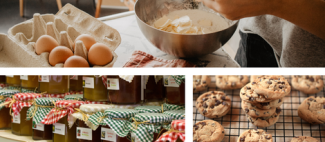ccc Secure Your Small Business: A Cybersecurity Essentials Webinar
Join us for an insightful webinar hosted by Start Small Think Big in collaboration with attorneys from Morrison Foerster, focusing on the critical importance of cybersecurity for small businesses. In today's digital landscape, understanding and mitigating cyber threats is part of safeguarding your business's future.
In this webinar, you'll learn to:
